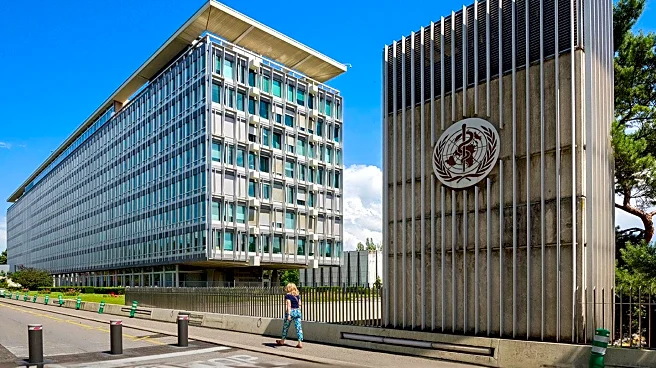What's Happening?
The Pan American Health Organization (PAHO) is currently evaluating the measles transmission data from the Americas, with a focus on Canada, which is experiencing a significant measles outbreak. This outbreak,
which began in October 2024, has persisted for over a year, potentially leading to the loss of the region's measles elimination status. Canada, which was declared measles-free in 1998, has seen over 5,100 confirmed and probable cases in 2025, primarily affecting under-vaccinated communities. The outbreak has spread across nine provinces and the Northwest Territories, with Ontario being heavily impacted. The PAHO committee is meeting in Mexico City to review the situation, and a decision on the region's status is expected soon.
Why It's Important?
Losing the measles elimination status would be a significant setback for the Americas, which is the only region to have achieved this status. The outbreak highlights the vulnerabilities in vaccination coverage, particularly in isolated communities. The situation underscores the importance of maintaining high vaccination rates to prevent the resurgence of preventable diseases. The potential loss of status could prompt increased public health efforts to address vaccination gaps and improve disease surveillance. It also serves as a reminder of the interconnectedness of global health, as measles can easily spread across borders if not contained.
What's Next?
If the PAHO committee determines that the measles elimination status is lost, Canada and other affected countries will need to demonstrate that they have stopped endemic transmission for 12 months to regain the status. This will require robust public health measures, including increased vaccination efforts and improved surveillance systems. The outcome of the PAHO meeting could influence public health policies and vaccination campaigns across the region, as countries work to prevent further outbreaks and restore their measles-free status.









